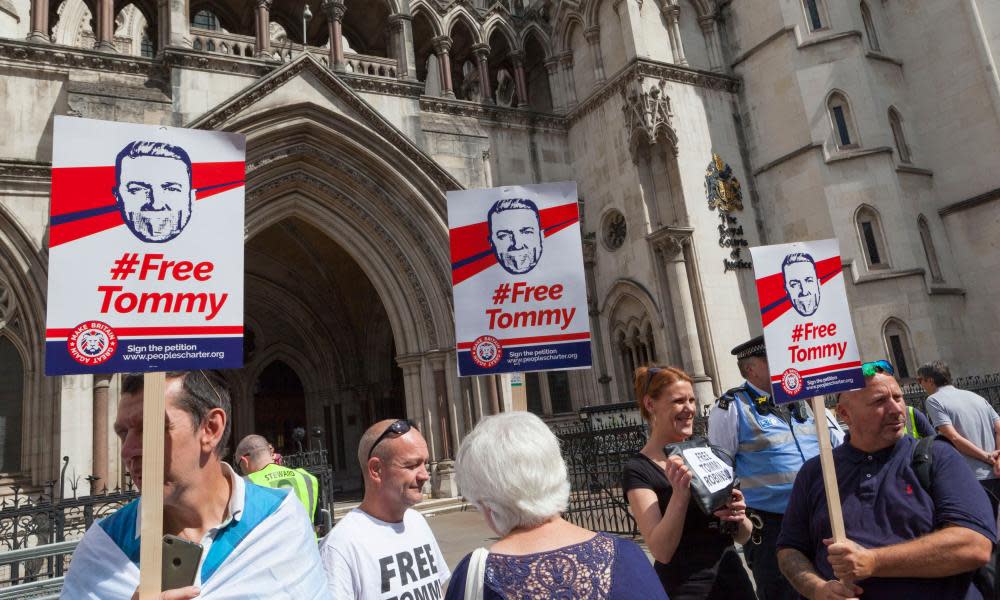Tommy Robinson to remain in jail as judges consider appeal

Tommy Robinson, the founder of the English Defence League, is to remain in jail while judges consider his appeal against a 13-month prison sentence for contempt of court.
Three judges in the court of appeal have reserved their decision after hearing evidence on Wednesday about his two convictions in Leeds and Canterbury for breaching reporting restrictions.
The lord chief justice, Lord Burnett of Maldon, said he hoped the court would deliver judgment before the end of July.
Lawyers for Robinson had urged the court to release him immediately, arguing that he had already served almost two months in prison and that the 13-month sentence was excessive and that the Leeds conviction was the result of a hearing conducted hastily.
Robinson, the founder of the far-right EDL, was sentenced for contempt after live-streaming a report of a trial in Leeds in May.
The judge in that trial had ordered that media reports of the proceedings should be postponed until the end of all related cases. Robinson was arrested while broadcasting outside the courthouse, tried in a summary hearing, sentenced and sent to prison within the space of five hours.
Charged under his real name, Stephen Yaxley-Lennon, he appeared before the court of appeal by video link from prison. He occasionally put his head in his hands as he listened to the legal proceedings.
Robinson had previously been given a suspended sentence for contempt of court after live-streaming at another case, in Canterbury last year.
Robinson’s counsel, Jeremy Dein QC, said the sentence imposed on him in Leeds was “manifestly excessive”. He said Robinson was being kept in conditions of virtually solitary confinement at Onley prison.
Consulting with his client had been difficult because it took so long for him to be brought out from his cell, Dein said. He called for the decision of the summary hearing to be quashed and for Robinson to be released on the grounds that he had already served almost two months in jail.
Precisely which parts of the contempt laws Robinson had breached had not been made clear, Dein said. “The proceedings were unnecessarily and unjustifiably rushed. They were conducted in haste.”
He said Robinson, when he was brought before the court, had offered to have the live stream deleted. “He did not act with impertinent defiance.”
Dein said Robinson and others working for Rebel Media had undertaken training sessions in London on media law.

 Yahoo News
Yahoo News 